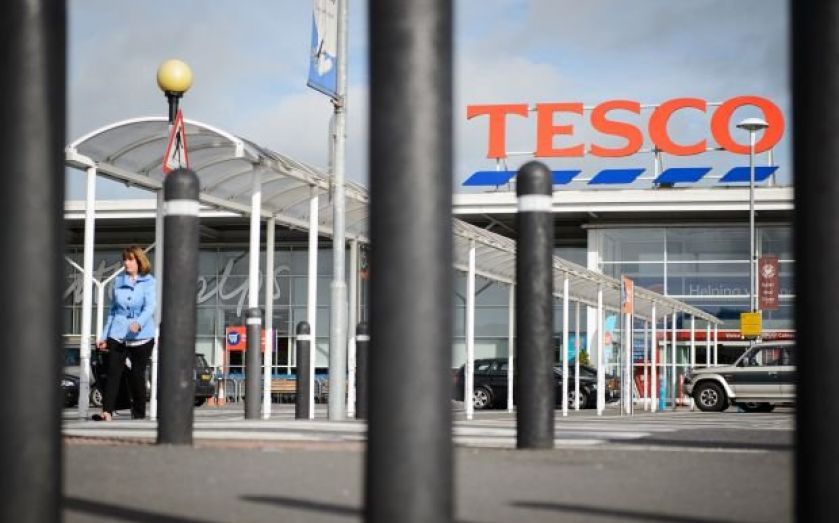| Updated:
Why Sir Richard Broadbent could be next to checkout at Tesco after £250m profit overstatement debacle

Things are always unnoticed until they’re noticed.” Those seven Rumsfeld-esque words could seal Sir Richard Broadbent’s fate as Tesco chairman.
Responding to questions about the accounting debacle at Britain’s biggest retailer, Broadbent offered a painful reminder of how quickly events can spiral out of the control of even the grandest of grandees.
The Tesco chairman’s desire to be “part of the solution, not part of the problem” is little more than wishful thinking. There are three principal charges that can be laid at his door.
First, Tesco should have parted company with Philip Clarke, the former chief executive, sooner than it did.
Second, he did little to reconstitute a board overflowing with City figures but lacking in the rough-and-tumble experience of the shop floor.
Worse than either of those for somebody regarded as prizing integrity, though, was the way he allowed Laurie McIlwee, Tesco’s departing finance director, to be smeared over the accounting debacle that prompted this week’s £250m profit restatement.
Broadbent was “not prepared to guess”, he said, when McIlwee had last been at Tesco’s head office.
Yet even if he had not known that Clarke had ordered his finance chief to stay away from the Cheshunt HQ as long ago as April, he must have known that characterising his absence as “days and weeks” was disingenuous at best.
He also knew something else. In April, Tesco established a new finance committee, chaired by Clarke, to fill the vacuum left by McIlwee’s exit. Last night, around 60 hours after Broadbent’s statements on Monday, the firm was forced to admit to this – and to clarify that McIlwee has not been involved since April.
Broadbent’s friends argue that a negative interpretation of his tenure is harsh; that he acted to replace Clarke and McIlwee, and that he can hardly be blamed for the wider structural changes taking place in UK food retailing.
That would be true; but the chairman has done little to inspire confidence that he can help solve Tesco’s big strategic dilemmas. Of the many things that Dave Lewis (who, in the interests of transparency, is on the board of BSkyB, my employer) will need to succeed as the group’s chief executive, one of them will be a chairman who has the faith of the City.
On that basis alone, Broadbent is heading for the checkout.
BALANCING ACT FOR SIR PHILIP
Call them troubleshooters or suckers for corporate punishment: either way, some people just cannot get enough of it.
Take Sir Philip Hampton, the RBS chairman whose appointment as chairman-designate of GlaxoSmithKline could come as soon as this morning (within a few days of its £300m fine for bribery offences in China).
His arrival at Britain’s biggest drugsmaker will highlight a board with the opposite problem to Tesco: too many directors with scientific backgrounds and not enough with wider experience of the City.
Sir Philip will want to address that imbalance when he takes over next year.

Danuta Gray is the mystery candidate at Aldermore
GRAY MATTER COULD’VE COME SOONER
There is little reason to expect that the listing of Aldermore will pass off anything other than smoothly: investors have, after all, demonstrated a healthy appetite for new bank stocks this year.
So the delay in appointing its senior independent director, pending approval by the Prudential Regulation Authority, was unfortunate.
The mystery candidate, I can reveal, is Danuta Gray, a former BT executive who sits on the boards of Michael Page, the recruitment agency, and Old Mutual, the financial services group.
Given her banking experience acquired in that latter post, it doesn’t seem unreasonable to ask whether approval for her Aldermore role could have been fast-tracked by regulators in time for its flotation announcement.
